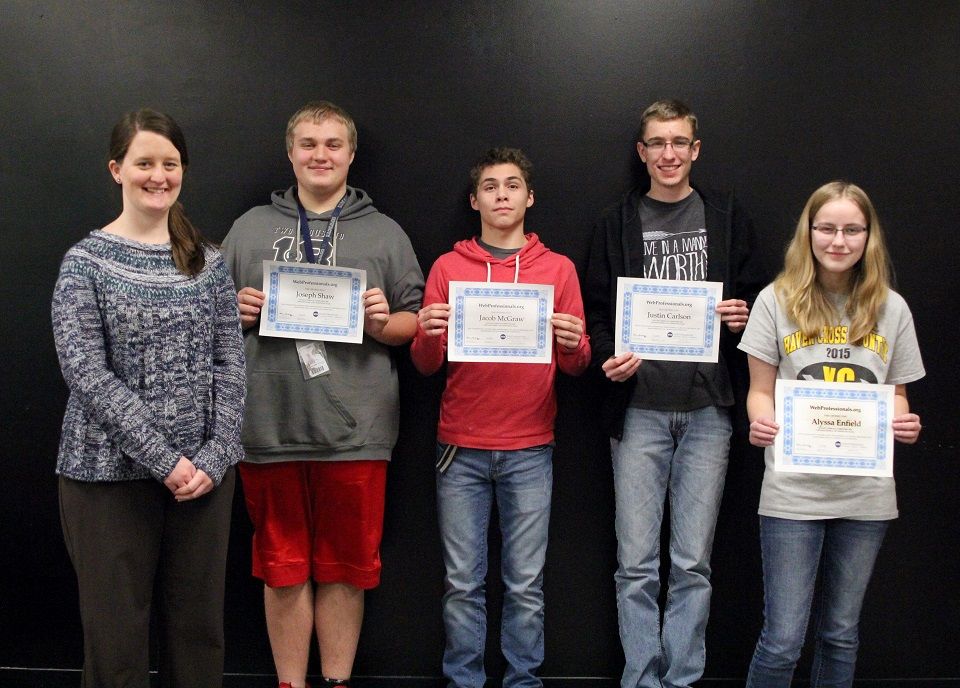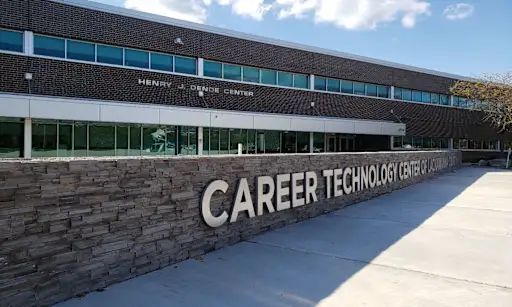Blog
The Importance of Career and Technical Education

In today's rapidly evolving world, the traditional model of education faces increasing scrutiny for its effectiveness in preparing students for the workforce. While the education system emphasizes subjects like history, math, and science, many students find themselves ill-equipped to navigate the complexities of the job market upon graduation. Many students enrolled in bachelor’s degree programs end up changing their majors, some multiple times, highlighting a fundamental disconnect between classroom learning and real-world career opportunities. This discrepancy often stems from a lack of hands-on career exploration during high school, leaving students uncertain about their future paths and increasing the likelihood of needing to make course corrections down the line.
At CTeLearning, we specialize in offering a diverse array of
career and technical education (CTE) courses to address these challenges. Unlike traditional education, which primarily focuses on academic knowledge, CTE is built around the premise of providing students with practical, hands-on experiences tailored to specific career pathways. By immersing students in industry-relevant coursework, CTE aims to bridge the gap between education and employment, equipping learners with the skills and insights needed to thrive in the workforce. Our courses equip schools to offer engaging CTE curricula to their students and expose them to exciting possible career pathways. Let’s look at the importance of offering CTE curricula in middle schools and high schools.
Experiential Learning
One of the defining features of CTE is its emphasis on experiential learning. Instead of relying solely on textbooks and lectures, CTE programs offer students opportunities to engage directly with industry professionals, explore workplace environments, and gain firsthand experience in their chosen fields. This hands-on approach not only enhances learning retention but also allows students to develop a deeper understanding of how theoretical concepts apply in real-world settings. Our curricula enable students to learn at their own pace while building real-world projects.
Test-Driving a Career
CTE instructors often bring valuable industry experience to the classroom, having worked as professionals in their respective fields before transitioning to teaching. This firsthand knowledge not only enriches the learning experience but also provides students with valuable insights into industry trends, best practices, and career pathways. By learning from practitioners who have navigated the challenges and opportunities within their fields, students gain a more comprehensive understanding of what to expect in their future careers. The CTeLearning team is made up of individuals who have worked in industry, and we work directly with professionals in various industries to contribute to our courses.
Recognizing the importance of early career exploration, policymakers have increasingly focused on integrating CTE into middle school curricula. The Perkins V Act, for instance, allocates funding to support career exploration initiatives in most states, ensuring that students have access to resources for discovering and assessing potential career paths at an early age. By introducing career exploration in middle school, students can begin to identify their interests, strengths, and career goals, laying the foundation for informed decision-making in high school and beyond.
The impact of CTE on students' career readiness is evident in the high levels of satisfaction reported by families with students enrolled in CTE programs. Nearly 85% of families express satisfaction with the career exploration opportunities provided by CTE, a stark contrast to the 54% satisfaction rate reported by families considering traditional education pathways. This widespread approval underscores the effectiveness of CTE in guiding students towards meaningful career pathways aligned with their interests and aspirations.
Improving Graduation Rates
Research indicates that CTE programs contribute to improved high school graduation rates. Students enrolled in CTE courses demonstrate higher on-time graduation rates compared to their peers, with CTE concentrators being 7% more likely to graduate from high school on time. This positive correlation between CTE participation and graduation rates underscores the importance of hands-on, practical learning experiences in keeping students engaged and invested in their education. By offering relevance and applicability, CTE motivates students to stay on track towards graduation, thereby reducing dropout rates and ensuring greater academic success. Our students work on real-world projects and earn certifications that they are excited to take with them in their futures.
Closing the Skills Gap
CTE also plays a crucial role in closing the skills gap prevalent in various industries across the United States and the globe. As the economy continues to evolve and embrace new technologies, there is a growing demand for skilled professionals in emerging fields such as Ai and robotics. CTE programs address this demand by equipping students with the technical expertise and industry-recognized certifications needed to succeed in high-demand occupations. By aligning curriculum with workforce needs, CTE ensures that graduates are well-prepared to meet the evolving demands of the job market, thereby driving economic growth and competitiveness.
Emphasizing Soft Skills
CTE emphasizes the development of soft skills alongside technical proficiency, further enhancing graduates' employability and adaptability in an ever-changing job market. In our courses, we teach skills such as critical thinking, collaboration, communication, and time management through project-based learning, teamwork, and real-world problem-solving exercises. These soft skills, often referred to as "21st-century skills," are highly valued by employers and are essential for success in any career path. By integrating soft skills development into our curriculum, we are helping to ensure that graduates are not only proficient in their chosen fields but also possess the interpersonal and problem-solving abilities needed to excel in diverse workplace environments.
Keeping up With Industry Changes
As the employment landscape continues to evolve in response to technological advancements and global trends, CTE remains adaptable and responsive to changing workforce needs. By incorporating cutting-edge technologies and industry-relevant practices into its curriculum, CTE ensures that students are equipped with the skills and knowledge needed to thrive in the digital age. Whether it's mastering the latest software tools or understanding emerging industry trends, CTE prepares students to succeed in dynamic and competitive industries.
CTE offers a holistic approach to education that prepares students for success in the workforce and beyond. By providing practical, hands-on learning experiences tailored to specific career pathways, CTE equips students with the skills, knowledge, and insights needed to excel in today's ever-changing job market. From early career exploration to industry-aligned training and soft skills development, CTE empowers students to make informed decisions about their futures and pursue meaningful and fulfilling careers. As we continue to navigate the challenges and opportunities of the 21st century, CTE remains a vital pathway for unlocking the full potential of our nation's workforce.
Reach Out Today
To set up a free demo of any of our courses with our development team, call us at 913-764-4272 or schedule directly using Calendly.
Share To
Get in touch with us today!
You can book a demo directly using Calendly, call us directly at 913-764-4272 or 877-828-1216, or submit the form and we will reach out to you.
We look forward to helping you and your students.

Most Recent Posts




